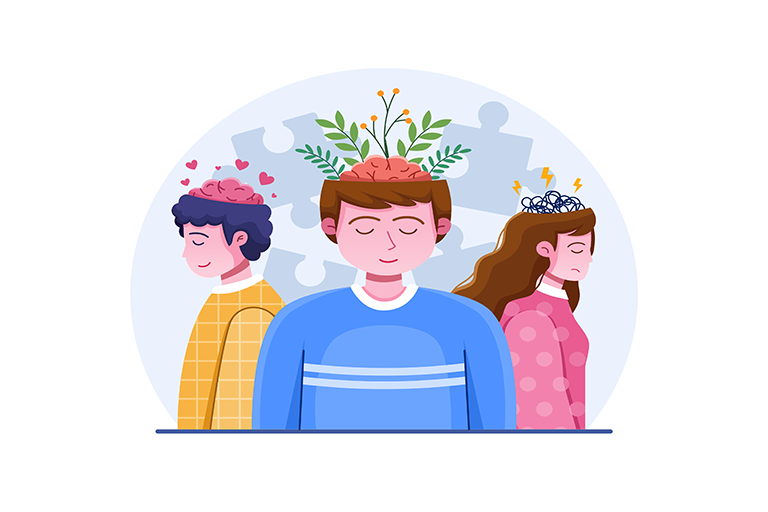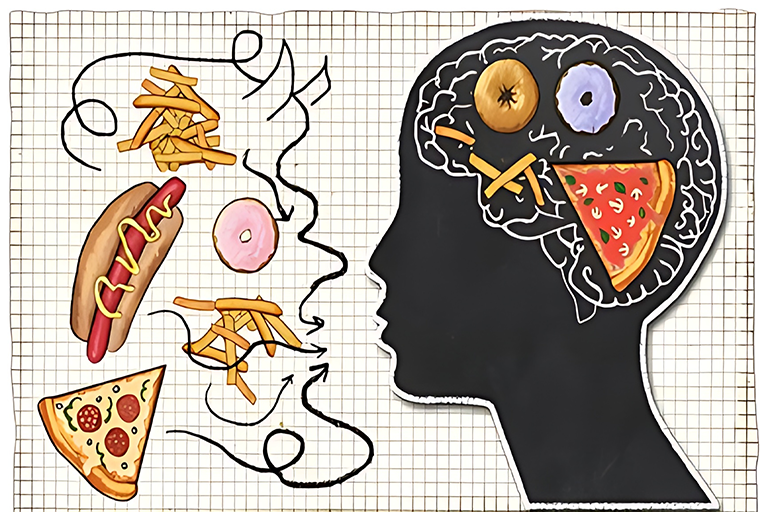Tips for Improving Mental Health and Mental Well-Being
Our mental health is just as important as our physical well-being. Taking care of our mental health can help us lead happier, more fulfilling lives. In this article, we’ll explore various tips and techniques for improving mental health and mental well-being.
Key Takeaways
- Prioritize self-care to maintain good mental health.
- Practice mindfulness to reduce stress and promote mental well-being.
- Foster positive relationships to nurture and maintain healthy support systems.
- Engage in regular exercise for improved mental and physical well-being.
- Practice good sleep hygiene to support mental health and improve sleep quality.
- Cultivate healthy eating habits to nourish the body and support good mental health.
- Learn to manage stress effectively through various techniques.
- Limit screen time and find healthier alternatives for leisure activities.
- Seek support and professional help when needed.
- Practice gratitude and positivity to cultivate a more positive outlook on life.
Prioritize Self-Care for Better Mental Health
Mental health is just as important as physical health, and self-care plays a crucial role in maintaining good mental well-being. Making time for yourself and focusing on your needs can help reduce stress, boost mood, and improve overall quality of life.
Here are some practical tips to help prioritize self-care:
| Self-Care Tip | Why It Helps |
| Set Boundaries | Establishing boundaries and saying ‘no’ when necessary can help prevent burnout and reduce stress levels. |
| Journaling | Writing down thoughts and feelings can help process emotions and improve self-awareness. |
| Practicing Gratitude | Focusing on the positive aspects of life can improve mood and overall mental well-being. |
| Taking Breaks | Stepping away from work or responsibilities can help recharge and reduce stress levels. |
Remember, self-care is not selfish. Making time for yourself and your mental health needs is essential for overall well-being.
Practice Mindfulness

Mindfulness is a powerful tool for improving mental well-being, reducing stress and anxiety, and increasing happiness. By practicing mindfulness, we can learn to focus on the present moment, let go of negative thoughts and emotions, and cultivate a sense of calm and clarity.
There are many different mindfulness techniques to choose from, including meditation, deep breathing exercises, and mindful movement practices like yoga or tai chi. Whatever technique you choose, the key is to approach it with an open and non-judgmental attitude, and to practice consistently.
One simple way to practice mindfulness is to set aside a few minutes each day for meditation or deep breathing exercises. Find a quiet, comfortable place to sit or lie down, and focus your attention on your breath. Notice the sensations of breathing in and out, and gently guide your attention back to your breath whenever your mind starts to wander.
You can also practice mindfulness in your daily activities by paying close attention to your senses and surroundings. For example, when you eat, focus on the taste, texture, and smell of your food. When you walk, notice the feeling of your feet touching the ground and the sights and sounds around you.
By regularly practicing mindfulness, you can improve your mental well-being, reduce stress and anxiety, and live a happier, more fulfilling life.
Foster Positive Relationships

Good relationships play a vital role in promoting mental health and well-being. Maintaining positive relationships with family, friends, and peers can help individuals feel loved, supported, and connected.
To foster positive relationships, it’s important to prioritize communication, compassion, and empathy. Here are some tips to help:
- Show appreciation: Thank loved ones for their support and let them know you care.
- Be present: Take the time to truly listen and engage in conversations with others.
- Practice forgiveness: Holding grudges and resentment can damage relationships; learn to let go and move forward.
- Set boundaries: Establishing healthy boundaries can help protect relationships from becoming toxic or draining.
Remember, healthy relationships take work and require effort from all parties involved. By nurturing positive relationships, individuals can cultivate a strong support system that promotes their mental health and well-being.
Engage in Regular Exercise

Regular exercise is a powerful tool for improving mental well-being. Not only does it release endorphins that can boost mood, but it also helps to reduce stress and anxiety. Incorporating physical activity into your daily routine can have significant positive effects on your mental health.
Start by finding an exercise or physical activity that you enjoy. It can be as simple as going for a walk or jog, practicing yoga, or taking a dance class. The key is to find something that you look forward to and can easily incorporate into your schedule.
Make a commitment to engage in regular exercise, aiming for at least 30 minutes a day, five days a week. This can help to establish a consistent routine and make exercise a habit. Start with small, achievable goals and gradually increase the intensity and duration of your workouts.
In addition to the physical benefits, regular exercise can also improve cognitive function, including memory and focus. It can also lead to increased self-esteem and confidence.
If you struggle to find motivation to exercise, try enlisting a friend or family member to join you or consider hiring a personal trainer. Mix up your routine to keep it interesting and challenging.
Remember, every bit of physical activity counts towards improving your mental well-being. Whether it’s taking the stairs instead of the elevator or going for a bike ride on the weekends, find ways to incorporate movement into your daily life.
Practice Good Sleep Hygiene
Getting enough quality sleep is essential for good mental health and well-being. Poor sleep hygiene can lead to a range of mental health issues including anxiety and depression. Here are some tips for improving your sleep hygiene:
- Stick to a regular sleep schedule: Try to go to bed and wake up at the same time every day, even on weekends.
- Create a sleep-conducive environment: Make sure your bedroom is quiet, cool, and dark. Use comfortable bedding and pillows.
- Avoid stimulating activities before bed: Avoid using electronic devices before bed as the blue light can interfere with sleep. Avoid caffeine and alcohol close to bedtime.
- Establish a pre-bedtime routine: Set aside time before bedtime to relax. This can include taking a warm bath, reading a book, or listening to calming music.
- Get regular exercise: Regular physical activity can help you fall asleep faster and stay asleep longer.
- Manage stress: Stress can interfere with sleep. Incorporate stress-reducing activities into your daily routine, such as meditation and deep breathing exercises.
By prioritizing good sleep hygiene, you can improve the quality of your sleep and support your overall mental health and well-being.
Cultivate Healthy Eating Habits
Good nutrition is essential for both physical and mental health. Eating a balanced diet rich in nutrients can help support mental well-being by providing the body with the fuel it needs to function optimally.
Here are some tips for incorporating healthy eating habits into your daily routine:
- Choose a variety of colorful fruits and vegetables to ensure you’re getting a range of nutrients.
- Include whole grains, such as brown rice and quinoa, for sustained energy and a steady release of glucose into the bloodstream.
- Include sources of lean protein, such as chicken, fish, and tofu, to support muscle and tissue repair.
- Avoid processed and sugary foods, which can cause a spike in blood sugar levels and lead to feelings of fatigue and mood swings.
- Stay hydrated by drinking plenty of water and avoiding sugary drinks.
Remember, healthy eating is not about deprivation or strict rules. Instead, focus on incorporating nutrient-dense foods into your diet and enjoying treats in moderation.
By making small changes to your diet, you can support your mental well-being and improve your overall health and vitality.
Manage Stress Effectively
Stress is an inevitable part of life, but it’s important to find ways to manage it effectively to protect our mental health. Here are some strategies to help manage stress:
- Identify stressors: The first step in managing stress is identifying what is causing it. This could be anything from work deadlines to personal relationships. Once you know what your stressors are, you can begin to work on ways to manage them effectively.
- Practice relaxation techniques: Relaxation techniques such as deep breathing, meditation, and yoga can help to reduce stress levels. Find a technique that works for you and practice it regularly.
- Exercise: Exercise is a great way to relieve stress. It helps to release endorphins, which are natural mood boosters. Find an exercise that you enjoy and make it a regular part of your routine.
- Get enough sleep: Lack of sleep can contribute to stress levels. Make sure you’re getting enough sleep each night to help manage stress.
- Practice time management: Poor time management can lead to stress. Make a schedule to prioritize tasks and manage your time effectively. This will help to reduce stress and increase productivity.
- Connect with others: Social support is important in managing stress. Talk to friends or family members about what’s going on and ask for their support.
- Seek professional help: If you’re having trouble managing your stress on your own, consider seeking professional help. A mental health professional can provide guidance and support.
Remember that managing stress effectively takes time and practice. Be patient with yourself and keep working on finding what works best for you. By taking steps to manage your stress, you can protect your mental health and overall well-being.
Limit Screen Time for Improved Mental Well-Being
In today’s digital age, our reliance on screens has increased tremendously. While technology has made our lives easier in many ways, excessive screen time can have negative effects on our mental well-being. Studies have shown that excessive screen time can lead to decreased sleep quality, increased risk of depression and anxiety, and reduced social skills.
To maintain good mental health, it is important to limit the amount of time spent on screens each day. Here are some practical suggestions:
- Set a daily limit for screen time and stick to it.
- Designate screen-free times or areas in your home, such as during meals or in the bedroom.
- Engage in screen-free leisure activities such as cooking, reading, or exercising.
- Use screen time tracking apps to monitor and limit your usage.
Reducing screen time can provide an opportunity to engage in other activities that promote mental well-being, such as spending time with loved ones, practicing mindfulness, or engaging in physical activity. By taking small steps to limit our screen time, we can improve our overall mental well-being.
Seek Support and Professional Help
It’s important to remember that seeking support and professional help is a sign of strength, not weakness. If you’re struggling with your mental health, don’t hesitate to reach out for help.
There are many resources available depending on your needs. You can start by talking to a trusted friend or family member, or reaching out to a therapist or counselor. There are also many helplines available that provide confidential support and advice.
If you’re experiencing a mental health crisis, it’s important to seek help immediately. You can call emergency services or go to your nearest emergency room.
Remember that you don’t have to go through it alone. Seeking support and professional help can make a significant difference in your mental well-being and quality of life.
Practice Gratitude and Positivity
Cultivating gratitude and positivity can significantly improve mental well-being. Practicing gratefulness helps individuals focus on the positive aspects of their lives, promoting a sense of contentment and reducing stress and anxiety. One way to practice gratitude is to keep a journal where you write down three things you are grateful for each day. This simple exercise can have a powerful impact on mental health over time.
Positive thinking also plays a crucial role in mental well-being. Our thoughts affect our emotions and behaviors, so it is essential to foster a positive mindset. One way to do this is by identifying negative self-talk and replacing it with positive affirmations. Regularly practicing positive affirmations can help individuals reframe negative thinking patterns and promote a more optimistic outlook.
Incorporating gratitude and positivity into daily life may take time and effort, but the benefits are worth it. By focusing on the good in life and cultivating a positive mindset, individuals can improve their mental well-being and overall quality of life.
Conclusion
Implementing these tips and techniques can have a positive impact on your mental health and well-being. Remember to prioritize self-care and seek professional help when needed. Take small steps each day to achieve overall mental well-being and live a happier, healthier life.
Learn more: Mental Health Awareness
& watch Your Confidant videos
Shruti Dua, Mental Health Blogger, YOUR Confidant






I needed to thank you for this excellent read!! I certainly enjoyed every little bit of it. I have got you saved as a favorite to check out new things you postÖ